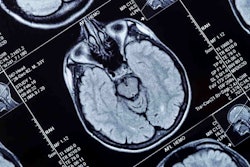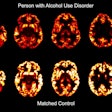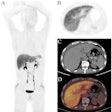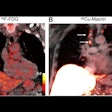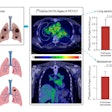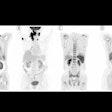
Is it acceptable to communicate results of Alzheimer's disease PET scans to patients without cognitive symptoms? Researchers recently explored this question, with results suggesting the practice causes no harm.
A group led by Jetske Van Der Schaar, of Amsterdam UMC in the Netherlands, explored empirical evidence in medical literature on the expected and experienced implications of sharing Alzheimer's disease biomarker results with individuals without dementia.
"Interest in [Alzheimer's disease] biomarker testing was high and sharing their results did not cause psychological harm," the group found.
Decades of research and innovations have enabled the detection of brain protein changes in people with suspected Alzheimer's disease, primarily using amyloid PET scans. This has led to a shift toward a biological definition of the disease based on the presence of brain pathology, the authors explained.
"At the same time, this has fueled a heated and ongoing debate in the field," the group wrote, in an article published July 26 in Alzheimer's & Dementia.
On one hand, learning whether amyloid or tau pathology is present in the brain may offer a chance to improve one's health, prepare for the future, and optimize quality of life, the authors wrote. On the other, being aware of living on the Alzheimer's disease continuum may involve risks of emotional burden, stigma, and discrimination.
To explore these issues, the group performed a systematic literature search and reviewed empirical data on expected and experienced implications of sharing biomarker results with individuals "who do not have dementia (yet)," they wrote.
The researchers identified 35 articles that reported perspectives of "personal stakeholders," defined as members of the general public, research participants, study partners, patients, caregivers, or relatives. Thirteen published studies assessed expectations before testing and 14 addressed actual experiences after disclosure of results. The remaining eight represented attitudes and practices of healthcare professionals.
Highlights of the analysis included the following:
- Most personal stakeholders expressed interest in Alzheimer's disease biomarker assessment.
- Personal motivations included gaining insight, improving lifestyle, or preparing for the future.
- There was no short-term psychological impact of sharing biomarker status, implying it can be safe.
- Most professional stakeholders valued biomarker testing, believing the benefits outweigh the risks.
"Learning negative biomarker results led to relief and sometimes frustration, while positive biomarkers induced anxiety but also clarity," the group wrote.
In addition, however, although most healthcare professionals appear to value biomarker testing, their attitudes and practices varied considerably, the group found. This is problematic, as the recent approval of new drugs to treat the disease is establishing biomarker testing in clinical practice, they wrote.
"Development and harmonization of testing guidelines and communication protocols are required, particularly in view of the imminent advancements in disease-modifying therapies," the group concluded.
The full article can be found here.








